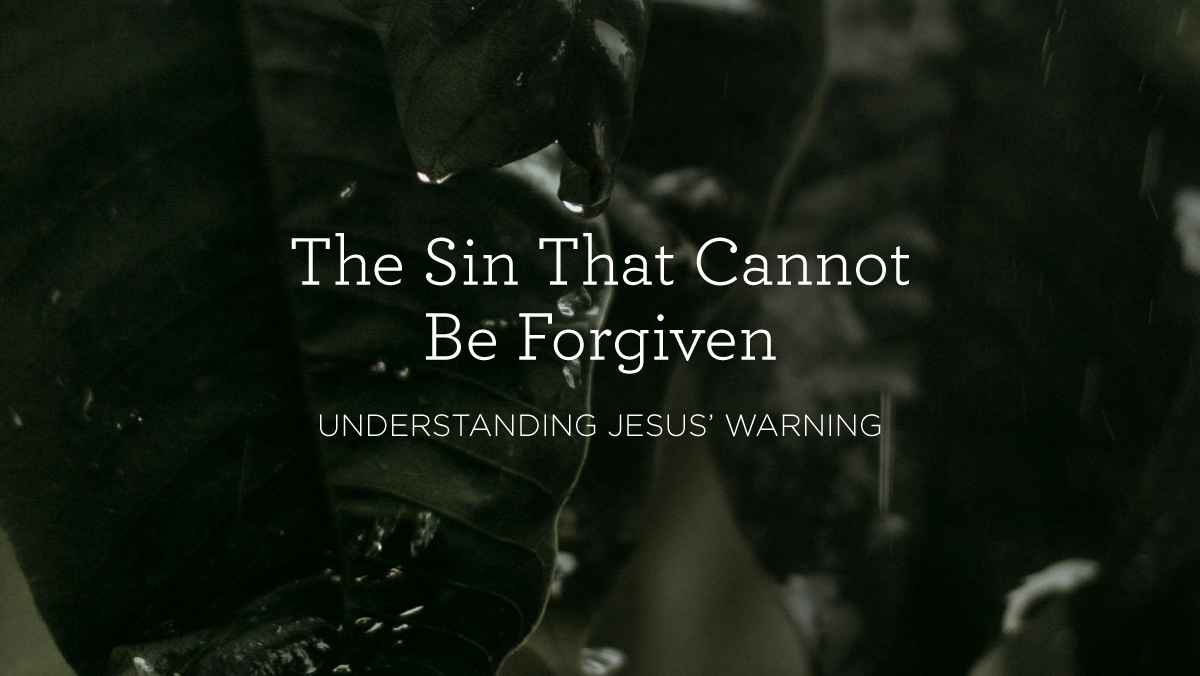
Small groups are nothing new. Neither is the concept of being “gospel-centered.” So why another article on these topics?
Far too often we make the mistake of assuming definitions. Yet without a clear sense of what we mean by “gospel-centered small groups,” we risk small groups that are active, creative, and fun, but not actually life-giving.
Table of contents
What it means to be gospel-centered
So before we even get to small-groups, we must first define what we mean by “gospel-centered.”
What does it mean to be a gospel-centered church? Simply put, a gospel-centered church is shaped, influenced, protected, and fueled by the finished work of Christ in every area of its corporate life. Not just in the preaching, but in the living. Not just in doctrine, but in relationships. Not just on Sundays, but throughout the week. Not just in the sanctuary, but in our homes. Not just from the pulpit, but in the one-another ministries of the church (Eph 5:19, Col 3:16). A gospel-centered church gathers around Jesus, proclaims Jesus, worships Jesus, tells others about Jesus, and obeys Jesus from the heart.
What a small group is not
Another potential obstacle to gospel-centered small groups is a misunderstanding of what a small group ought to be.
Far too often, small groups have had ministry philosophies utterly disconnected from the church, the Scriptures, and the general wisdom of the ages. With that in mind, let’s think together about what a small group is not.

1. A weekly Bible trivia night
There’s nothing wrong with knowing Bible facts. To the contrary, the church should be full of saints who are hungry to grow their knowledge for the Word! But gospel-centered small groups aren’t aimed at producing better contestants for Jesus Jeopardy; they’re aimed at cultivating more faithful disciples.
If your small group walks away knowing the kings of Israel in order, but no one has confessed sin, encouraged a struggling saint, or prayed for the lost, we’re missing the point.
In a healthy small group, the Bible isn’t just information to be mastered, but a living Word that masters us. If your small group walks away knowing the kings of Israel in order, but no one has confessed sin, encouraged a struggling saint, or prayed for the lost, we’re missing the point.
2. A therapy session
Yes, we bring our burdens to small group. Yes, we comfort and counsel one another. But gospel-centered groups aren’t about venting our feelings into a relational echo chamber, they’re about pointing one another to Christ and his grace, wisdom, and his promises.
3. A social club
Fellowship, shared meals, and fun games are all gifts from our gracious God. But if small groups become indistinguishable from a fantasy football league or book club, something’s wrong.
Small group members may share certain earthly affinities, from team allegiances to style preferences, but they must also be intentional in building relationships primarily around Jesus and the gospel. Small groups may include food and fun, but those things merely serve the mission, and must never replace it.
4. A replacement for the gathered church
This one’s big. Your small group cannot replace your church body. How can an arm or a leg replace an entire body (1 Cor 12)? It can’t! In the same way, an extension of the local church can never replace the church as a whole.
To get more practical: Small groups are not where you receive the preached Word, partake of the ordinances, or sit under the leadership of elders.
Gospel-centered groups are an overflow of the Sunday gathering, not an alternative to it. When a small group becomes a “mini-church,” there needs to be a course correction.
5. A place to hide from accountability
Ironically, some people join small groups to avoid the deeper accountability of life in the whole church. They stay just vulnerable enough to look open, but not committed enough to be held accountable in any meaningful way.
A local church can protect itself from this by simply keeping small group membership for those who have already committed to the membership of their local church.
5 traits of gospel-centered small groups
Ok, with these definitions in mind, let’s now connect the dots and think about how to have gospel-centered small groups.
1. Gospel-centered Sunday worship
While much could be said on this subject, perhaps nothing is more important than this—if you want to have gospel-centered small groups, you have to have gospel-centered Sunday worship. It’s not that curriculum, leader qualifications, or administrative demands are unimportant—they matter. But understanding the connection between Sundays and small groups is absolutely foundational.
The Christian life is sustained by the gathered worship of the local church on the Lord’s Day (Rev 1:10), the day Jesus got up out of the grave, victorious over sin, hell, and death. This weekly worship pattern is the primary rhythm of the corporate life of the church, the weekly re-centering of our hearts and lives around the gospel. On Sundays, the Word is proclaimed, our hearts are lifted in corporate song, are hearts are united as one in prayer, and the ordinances remind us of Jesus’s first and second coming. Everything about the Sunday gathering is designed to reorient the entire church around the core truths of the gospel.
Sundays are so important that Jesus says we won’t make it to heaven without them. In Hebrews 10:24–25, for example, believers are urged to “consider how to stir up one another to love and good works, not neglecting to meet together.” This command is part of an overall emphasis on perseverance. How do we follow Jesus all the way home? We gather together to lock arms for the journey. And the assumption isn’t just that we gather, but that our gathering on Sunday empowers everything else about our life together throughout the week. Sunday morning worship isn’t meant to be a parking space, but a launching pad. Sunday is the starting line for the race that is our life together!
This is exactly what we see in Acts 2. After Peter’s sermon at Pentecost, thousands were converted and baptized. Notice what followed: “And they devoted themselves to the apostles teaching and the fellowship, to the breaking of bread and the prayers” (Acts 2:42). The public proclamation of the gospel led directly into shared life among believers. Their worship didn’t stop when they left the crowd, it deepened as they broke bread in homes and shared all things in common. The early church didn’t divide public worship and personal fellowship; they saw them as deeply connected expressions of the same corporate life.
Too often, churches treat small groups and Sunday services like two separate tracks in church life. I’ve even had a pastor tell me, “If you can only make it to one gathering during the week, make it your small group. That’s where real relationships are built in the church.” But in Scripture, Sundays and weekdays are not in competition. Rather, Sunday worship is the headwaters from which the rivers and tributaries of Christian community flow.
In gospel-shaped community, what begins in the sanctuary flows into the living room: prayer, confession, encouragement, and application of the Word. Small groups, when rooted in the gospel and tethered to the Sunday gathering, become places where Christ is not only studied but shared, not only proclaimed but practiced. In other words, gospel-centered small groups don’t compete with the Sunday gathering, they continue it.

2. Gospel-centered accountability
If we’re serious about obeying the Word, we must be serious about gospel-centered accountability. The word accountability can carry all kinds of baggage, depending on background and experience. But we must not think of accountability as invasive policing or cold confrontation, but rather, as loving watchfulness, rooted in grace and aimed at growth. As one church covenant puts it,
We will walk together in brotherly love … exercise affectionate care and watchfulness over each other … and faithfully admonish and entreat one another as occasion may require (John 13:34–35; Eph 5:1; Col 3:16; Heb 10:24–25).
Gospel-centered small groups are places where church members give one another permission to speak the truth in love (Eph 4:15), to help each other fight sin, and to stir one another up to love and good works (Heb 10:24).
This kind of accountability only works when it is built on trust, and trust is built when members consistently show up, speak truthfully, pray honestly, and keep confidence. You can’t microwave that kind of culture. It takes time, intentionality, and shared commitment to the gospel.
Which is why small groups shouldn’t just be grouped by geography or life-stage convenience. Ideally, they’re formed and sustained through shared covenant membership, regular proximity, and a shared commitment to build each other up in Christ. When members are regularly hearing the same sermons, praying for the same church members, and pursuing the same mission, accountability isn’t weird or forced, it’s natural.
2. Gospel-centered mission
Another temptation for small groups is to become inward-focused. The danger isn’t that people grow too close, it’s that they grow close for the wrong reasons. A healthy small group should never become a cul-de-sac of spiritual comfort, but rather a launching pad for mission. After all, the gospel doesn’t just call us in: It sends us out.
Jesus’s commission to the church was not simply to gather and grow, but to “go … and make disciples” (Matt 28:19). Gospel-centered small groups embrace this call. They don’t just ask, “How can we care for each other?” but also, “Who can we reach?”
A healthy small group should never become a cul-de-sac of spiritual comfort, but rather a launching pad for mission.
This might look like hosting neighbors for dinner, partnering in outreach efforts, or praying by name for unbelieving friends and coworkers. The goal isn’t to merely check on evangelism box every week, but to cultivate a gospel culture that naturally overflows into gospel mission.
4. Gospel-centered leadership
Gospel-centered small groups also need gospel-shaped leaders. Not superstars. Not gurus. Not Bible answer men. Just faithful, humble, Spirit-filled Christians who love Jesus and love his church.
Good leaders don’t dominate discussion, they draw others out. They aren’t afraid to say, “I don’t know, let me get back to you on that,” and they don’t have to fix every problem. Instead, they point others to Jesus and the Word, again and again. They’re thermostats more than thermometers. They help set the spiritual temperature of the group through personal integrity, love for God’s Word, prayerfulness, and by faithful example.
Churches that want gospel-centered small groups must train and support these leaders. Equip them with tools and encouragement. Don’t make them carry the weight of pastoral care if they are not themselves pastors, but do entrust them with real responsibility. When leaders are grounded in the gospel and tethered to the church, they help set the tone for groups that glorify God and do real spiritual good.
5. Gospel-centered culture
In the end, gospel-centered small groups are not a church growth strategy. They’re not a trendy model or a plug-and-play ministry program. They are just one expression of a much bigger reality: a church culture that is shaped by the gospel at every level.
You can’t fake it. If your church doesn’t truly treasure Christ, no structure or system will make your small groups fruitful. But if your church worships Jesus, proclaims Jesus, obeys Jesus, and builds every ministry on the finished work of Jesus, then your small groups can become vibrant microcosms of gospel community, places where truth and love meet, where grace and growth go hand-in-hand, and where believers help one another follow Jesus all the way home.
So yes, think about group size. Talk through curriculum. Make a childcare plan. But most of all, give yourself to the gospel. Preach it. Apply it. Obey it. Share it. Let it fuel your worship, shape your relationships, and transform your small groups from routine gatherings into a taste of heaven on earth.
Because when the gospel is at the center, everything else falls into place.
Additional resources for gospel-centered ministry and small groups
Leading Small Groups: How to Gather, Launch, Lead, and Multiply Your Small Group
Save $0.37 (5%)
Price: $7.12
-->Regular price: $7.49
The Gospel-Centered Community, Study Guide with Leader’s Notes (The Gospel-Centered Life)
Save $3.00 (17%)
Price: $13.99
-->Regular price: $13.99
Center Church: Doing Balanced, Gospel-Centered Ministry in Your City
Save $1.85 (5%)
Price: $35.14
-->Regular price: $36.99
The Gospel-Driven Church: Uniting Church Growth Dreams with the Metrics of Grace
Price: $12.99
-->Regular price: $12.99
Gospel-Centered Discipleship, 2nd ed.
Save $0.70 (5%)
Price: $13.29
-->Regular price: $13.99
Gospel-Centered Teaching: Showing Christ in All the Scripture
Save $2.50 (25%)
Price: $7.49
-->Regular price: $7.49
Love the Ones Who Drive You Crazy: Eight Truths for Pursuing Unity in Your Church (9Marks)
Save $0.65 (5%)
Price: $12.34
-->Regular price: $12.99
The Gospel-Centered Life in the Bible (17vols.)
Save $47.84 (20%)
Price: $189.99
-->Regular price: $189.99
Related articles
- 10 Essential Steps to Launching a Vibrant Small Group Ministry
- How to Ask Excellent Bible Study Discussion Questions
- Where Comfort Goes to Die: Christian Community Beyond Homogeneity
- What Your Church Needs to Train Leaders (You Probably Already Have It)
- Is Your Church Truly Healthy? Look to Love, Not Metrics


 1 week ago
30
1 week ago
30










 English (US) ·
English (US) ·